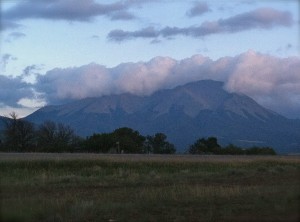
Why all this fret and flurry?
Dost thou not know that what is best
In this too restless world is rest
From over-work and worry?
-Longfellow
Nearly all systems of healing arts and medicine in the world recognize two circuits for distributing the current of life through the human body. In western medicine the nervous system is divided in to two divisions, the sympathetic (fight or flight) and the parasympathetic (rest and digest), Aruvedic medicine calls these two divisions the Ida and the Pingala, others call this Yin and Yang. Regardless of the name the principle remains the same – balance between these two currents leads to health, an imbalance leads to disease. Stress, lack of sleep, stimulants, processed foods, environmental toxins, lack of exercise, sun and fresh air all lead to an abundance of sympathetic tone in the central nervous system.
A recent study in a Western medical journal suggests that eighty percent of all disease is a result of an imbalance between the sympathetic and the parasympathetic nervous system. This imbalance known as a sympathetic dominant state leads to a complex change in our physiology; “stress hormones,” such as cortisol and adrenalin are released, small messenger molecules called cytokines are released all of this leads to an increase in blood pressure, heart rate, inflammation, cholesterol and a poorly functioning immune system as well as a restless mind and general agitation.
Rest is natures best medicine and tonic when it comes to balancing the sympathetic / parasympathetic nervous system. The Ida and Pingala channels are harmonized in a state of rest. While sleep is very important true rest does not necessarily mean sleep. True rest is a state of repose in which the mind becomes neutral and is receptive to the movement of life. True rest could be active or passive as it is a state of mind.
I recently came across a wonderful little article written by an osteopathic physician in 1925 Verna Radel, D.O. wrote,
“Too little attention has been paid to the necessity of rest as a conserver of force, as a means of maintaining health and consequently happiness: too little has been said on the subject of vacations. The truth of this is impressed upon us daily by the army of tired faces; faces stamped with tension and anxiety. Hurry and worry are more fatal than disease.
The true physician teaches men, women and children how to combine activity with rest, how to conserve energy while spending it. He teaches that we are foolishly the slaves of our possessions and that besides a definite aim in life we should have a hobby (meditation), which we may ride for freedom.
There would be fewer chronic invalids, fewer cases of melancholia and neurasthenia if people as a whole took more vacations (retreats) and fewer hypothetical tonics. Real tonics are drawn from the vast storehouses of Nature – from sunshine, pure air, exercise, healthful food and sleep.”
She closes by saying,
“You are not dual, your soul is the only one there is! This intimate companionship with self thus enjoyed may enable you to discover hitherto unsuspected talents. Every moment of this intimacy with yourself is fraught with deepest significance and will return to you a hundredfold treasure in health, strength, and enlarged ability. – Verena Radel, D.O., The Osteopathic Magazine, 1925.
In our modern times Dr. Radel’s words ring more true than ever. In our fast paced world rest is often an overlooked essential aspect to health and a balanced life. The need for rest is an inescapable truth as essential as water, food, and air.

Even though we call ourselves human beings, I think we often lose ourselves in the doings.